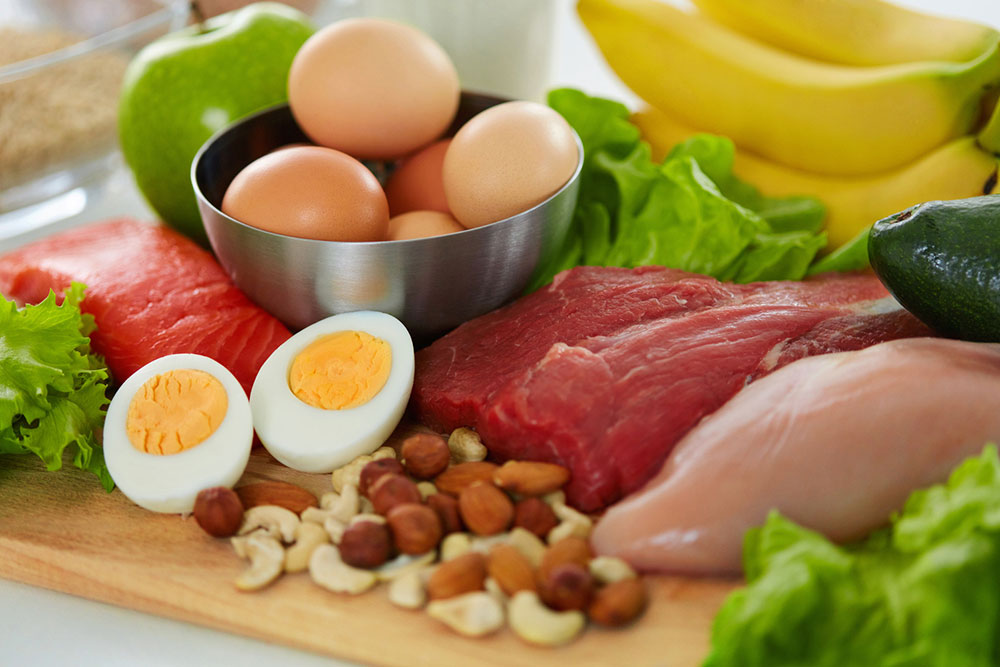
13 superfoods for cancer prevention
Research data estimates that approximately 5.5% of the population nationwide suffers from cancer. While genetic factors also play a role in the onset of cancer, certain lifestyle changes can help with its prevention. According to WHO, 30-50% of all cancer cases can be prevented. Following a healthy meal plan, staying physically active, and avoiding processed foods are some ways to help prevent cancer. Here are some superfoods that can reduce cancer risk:
Garlic
Garlic serves several vital functions in the body besides flavoring one’s food. This ingredient fights against H. pylori, a bacterium associated with stomach cancer, and reduces one’s risk of developing stomach, pancreatic, and colon cancer. It also reduces the risk of other cancer types, including esophageal and breast cancer. Peeling and chopping garlic cloves about 20 minutes before having them can activate compounds containing sulfur and maximize their anti-cancer properties.
Tomatoes
These versatile fruits are packed with lycopene, an antioxidant that terminates cancer cell growth, prevents damage to DNA, and enhances the functioning of enzymes involved in destroying cancer-causing elements. Studies have shown that a meal plan rich in lycopene can reduce the risk of pancreatic cancer by 31%. It is also proven to help prevent prostate cancer. Tomatoes may be added to stir-fries, gravies, salads, soups, etc., to enliven one’s meals.
Broccoli
This cruciferous vegetable contains high concentrations of sulforaphane, a cancer-fighting phytochemical that reduces the risk of prostate, breast, colon, and mouth cancers. Alongside broccoli, one should also have other cruciferous vegetables like cauliflower, Brussels sprouts, and cabbage to reduce cancer risk.
Oatmeal
Rolled oats are packed with fiber, antioxidants, and phytoestrogens, which are plant-based compounds that reduce one’s vulnerability to heart disease, osteoporosis, and other health conditions. Such effects of oatmeal aid in cancer prevention. Moreover, reports by the World Cancer Research Fund and the American Institute for Cancer Research (AICR) recommend that individuals have at least 30 grams of fiber daily. Oatmeal with some milk or yogurt is the perfect breakfast cereal; moreover, this ingredient can also be added to pancakes and smoothies.
Berries
Berries have been shown to protect the body against the harmful effects of oxidants, or molecules that can cause cell damage and increase one’s risk of skin cancer. Thus, it is a good idea to include berries like blueberries, raspberries, strawberries, and blackberries in one’s meals to reduce the risk of cancer.
Fatty fish
Fatty fish varieties like tuna, salmon, mackerel, and herring are packed with omega-3 fatty acids, which can slow cancer progression and reduce inflammation. Moreover, fatty fish contain DHA, an omega-3 fatty acid that is shown to inhibit tumor growth and prevent ovarian cancer from advancing to the metastatic or advanced stage.
Grapes
Grapes are rich in resveratrol, an antioxidant that can help prevent breast, liver, lymphatic, and stomach cancers. Since the skin of grapes contains maximum concentrations of resveratrol, it is advisable to have grapes with their skin intact. Grapes can be added to fruit salads and other salads, juices, smoothies, etc.
Mushrooms
Multiple studies have found that individuals who incorporated mushrooms into their meal plans had a lowered risk of cancer. Mushrooms are rich sources of the antioxidant ergothioneine, which ensures cell protection and reduces one’s susceptibility to cancer. One may add mushrooms to soups and stir-fries to treat one’s palette and reduce cancer risk.
Carrots
Loaded with beta-carotene, carrots work wonders for the eyes and have cancer-fighting properties. Moreover, cooked carrots entail phytochemicals and vitamins that may safeguard the body against breast, esophageal, stomach, and larynx cancers. Some studies have also demonstrated its effectiveness in preventing cervical cancer, primarily because it contains antioxidants that can fight against the human papillomavirus, the major cause of cervical cancer. Carrots are excellent additions to one’s salads, stir-fries, juices, smoothies, and soups.
Papayas
Like carrots, papayas are also rich in beta-carotene and may play a protective role against cancer. Further, a research study published in the journal Cancer Epidemiology and Prevention Biomarkers suggests that meal plans incorporating papaya can help prevent prostate cancer among younger men.
Eggs
The proteins and peptides found in eggs have been found to induce apoptosis in cancer cells and protect against damage to one’s DNA. Moreover, eggs are excellent sources of protein, which is required for enhanced immunity. Scrambled eggs, boiled eggs, poached eggs, and omelets are popular and nutritious breakfast options.
Yogurt
Packed with probiotics and a great protein source, yogurt aids digestion and reduces the risk of colorectal and bladder cancer. Some studies also recommend yogurt in moderation for the prevention of breast cancer.
Turmeric
Curcumin, a bright-yellow chemical present in turmeric and responsible for its color, is widely used for its anti-inflammatory properties. Some recent studies have now demonstrated the cancer-fighting properties of curcumin. Specifically, these studies indicate its effectiveness in preventing breast, lung, colon, and prostate cancers. Today, turmeric latte is a popular beverage and an interesting way to incorporate turmeric into one’s meals. One may also add a pinch of turmeric to soups, smoothies, stir-fries, etc.
Besides following a healthy lifestyle and incorporating the foods mentioned above into one’s meal plan, one should avoid processed and sugary foods, which can increase one’s risk of cancer. Also, a sedentary lifestyle has been shown to increase one’s susceptibility to cancer; therefore, it is important to follow a comprehensive workout routine involving cardio and weight and strength training exercises. One should also ensure rising from one’s seated position every now and then, stretching and walking about to prevent being sedentary.
It is also essential to stay hydrated to remove toxins from the body and ensure optimal organ functioning, which can help prevent cancer. Additionally, it is highly recommended to undergo regular cancer screenings, as diagnosing the disease in its early stages can significantly increase the chances of successful treatment and recovery.


